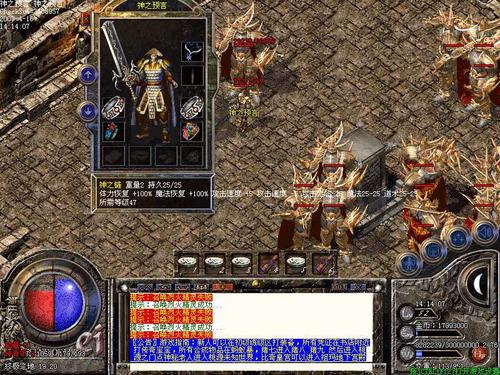◎欢迎参与讨论,请在这里发表您的看法、交流您的观点。
sifuchuanqi: The Fascinating World of Sifuchuanqi - Meaning, History, and Cultural Significance
星期三 2024年9月25日 admin 手游新服表 sifuchuanqi 0人
sifuchuanqi: The Fascinating World of Sifuchuanqi - Meaning, History, and Cultural Significance
Sifuchuanqi, which translates to “Four Elements of Transformation,” is a concept that resonates deeply within aspects of Chinese culture, philosophy, and even modern practices. The term itself is rooted in a blend of historical narratives and traditional beliefs that describe the interconnectedness of the natural world and human experience. Delving into the meaning of sifuchuanqi not only opens a window to its historical context but also highlights its cultural significance in today’s society. In this comprehensive exploration, we aim to illuminate the rich tapestry woven by the concept of sifuchuanqi, its implications in contemporary practices, and the diverse interpretations that shape our understanding of it.
Understanding the Origins and Historical Context of Sifuchuanqi
The origins of sifuchuanqi can be traced back to ancient Chinese philosophies, particularly teachings that involve the interconnectedness of the natural elements. Traditionally, it is believed that the four elements - earth, water, fire, and air - play crucial roles in shaping the environment and influencing human behavior. Each element brings forth its own characteristics, strengths, and challenges, which are essential in understanding the dynamics of life. In ancient China, these elements were not merely seen as physical substances but as symbolic representations of broader life concepts. Notably, Chinese medicine, martial arts, and even literary works frequently reference these elements, showcasing their significance in decision-making, health, and conflict resolution. Understanding the historical context of sifuchuanqi enriches our appreciation for how these teachings have endured through centuries, influencing modern practices and perspectives.
Furthermore, the concept of sifuchuanqi has evolved, adapting to contemporary interpretations while maintaining its core philosophy. Modern approaches often integrate these principles into self-development frameworks, traditional practices, and even spiritual teachings. For instance, many wellness practitioners utilize the concept to guide individuals in achieving balance in life, helping clients recognize how the imbalance of these elements can lead to personal challenges. This connection between historical concepts and modern applicability resonates with a large audience, emphasizing the relevance of ancient wisdom in addressing present-day issues.
The Cultural Significance and Contemporary Applications of Sifuchuanqi

In today’s society, the relevance of sifuchuanqi stretches across various disciplines, from the arts to psychology and holistic health practices. Artists frequently draw on these elemental concepts to inspire works that reflect the complexity and harmony of life. Music, dance, and visual arts often incorporate the principles of earth, water, fire, and air, encouraging audiences to connect with the elemental energy that defines our existence. By understanding these representations, viewers gain a deeper appreciation for the artistic expressions rooted in traditional philosophies.
Moreover, the cultural significance of sifuchuanqi manifests prominently in modern wellness and coaching philosophies. Life coaches and wellness practitioners employ the principles of these four elements to help clients achieve better harmony in their lives. By encouraging individuals to reflect on which element is currently dominant or lacking, clients can address their physical, emotional, and spiritual well-being more holistically. This method aligns with various alternative therapies, including acupuncture and feng shui, which also recognize the significance of elemental balance. As society increasingly seeks out holistic solutions to stress, anxiety, and personal challenges, the teachings of sifuchuanqi gain traction, offering timeless wisdom that speaks to the core human experience.
In conclusion, sifuchuanqi encapsulates a rich narrative filled with meaning and cultural significance that transcends time. By exploring its historical roots, contemporary interpretations, and applications, we bolster our understanding of how ancient teachings can guide personal development in a modern context. Whether through art or wellness practices, the essence of sifuchuanqi continues to impact lives today.
Q&A
Q: How can I incorporate the principles of sifuchuanqi into my daily life?
A: You can begin by reflecting on the four elements within your life – earth, water, fire, and air. Consider which elements resonate most and which feel unbalanced. You can then engage in practices such as meditation, journaling, or creative expression that focus on restoring balance and understanding between these aspects.
Q: What is the modern relevance of sifuchuanqi in wellness practices?
A: Sifuchuanqi is utilized in many modern wellness practices as a framework for achieving balance. Coaches and therapists may guide individuals to evaluate how the imbalance of these elements affects their lives, ultimately promoting a more harmonious and fulfilling existence by aligning personal values with elemental principles.
- 本文标题:sifuchuanqi: The Fascinating World of Sifuchuanqi - Meaning, History, and Cultural Significance
- 本文地址:http://www.llshyb.com/post/149.html